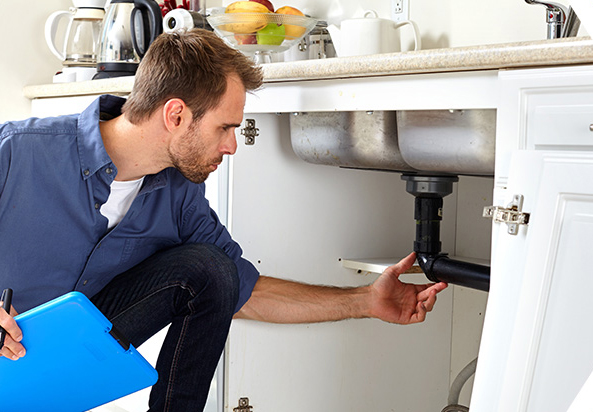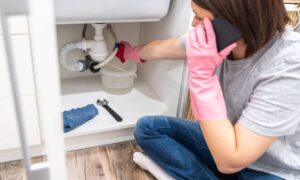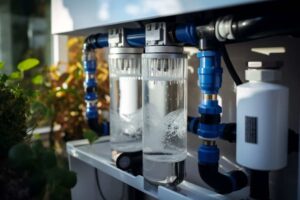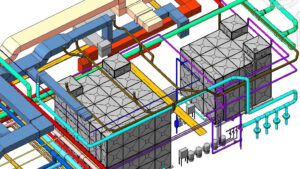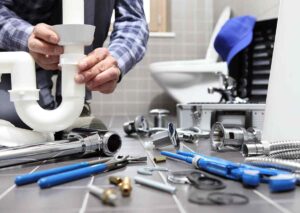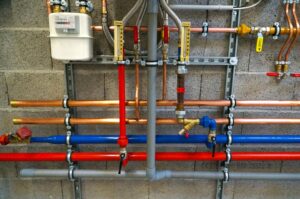How to Maintain Your Plumbing System: Tips and Best Practices
Maintaining your plumbing system is crucial for ensuring a trouble-free household. From regular inspections to simple preventive measures, following basic plumbing maintenance tips can save you from expensive repairs and inconvenient disruptions. Here are some essential tips and best practices for keeping your plumbing system in top shape.
Regular Inspections and Early Detection in Plumbing System
Regular inspections are the cornerstone of effective plumbing maintenance. By identifying potential issues early, you can address them before they escalate into major problems.
Visual Inspections: Make it a habit to visually inspect exposed pipes, taps, and fixtures for signs of leaks, corrosion, or damage. Look for water stains on walls and ceilings, which may indicate hidden leaks.
Professional Inspections: Schedule annual inspections with a professional plumber. A professional can conduct a thorough check-up of your plumbing system, including concealed areas like crawl spaces and behind walls, ensuring any issues are detected and fixed promptly.
Preventative Maintenance for Drains
Clogged drains are a common plumbing issue that can be easily prevented with regular maintenance.
Avoiding Blockages: Be mindful of what goes down your drains. Avoid disposing of grease, food scraps, coffee grounds, and hair in sinks and showers. Use drain screens to catch debris and regularly clean them.
Routine Cleaning: Periodically flush your drains with a mixture of hot water, baking soda, and vinegar to keep them clear. Alternatively, use enzyme-based drain cleaners, which are less harmful to your pipes and the environment than chemical cleaners.
Avoid using chemical drain cleaner and chemical drain cleaners, as they can damage your pipes and are harmful to the environment. Instead, consider homemade cleaning supplies or enzyme cleaners to maintain your drains.
Plunger and Auger Use: Keep a plunger and a drain auger on hand for minor clogs. Knowing how to use these tools can help you address clogs quickly and effectively without calling a plumber.
Protecting Pipes from Freezing
In colder regions, freezing temperatures can cause pipes to burst, leading to extensive water damage.
Insulation: Insulate pipes in unheated areas, such as basements, attics, and garages. Foam pipe insulation is easy to install and provides effective protection against freezing.
Drip Taps: During extreme cold, allow taps to drip slightly. This keeps water moving through the pipes, reducing the risk of freezing.
Seal Gaps: Seal any gaps and cracks in walls, floors, and windows near pipes to prevent cold air from penetrating and causing pipes to freeze.
Water Heater Maintenance
Your water heater is an essential part of your plumbing system. Regular maintenance ensures it operates efficiently and lasts longer.
Temperature Settings: Set the temperature of your water heater to 60°C (140°F) to prevent scalding and reduce energy consumption.
Flushing the Tank: Annually flush your water heater tank to remove sediment build-up. This improves efficiency and extends the life of the heater.
Inspecting the Anode Rod: Check the anode rod every few years and replace it if it’s heavily corroded. The anode rod helps prevent the tank from rusting.
Leak Detection and Repair
Even small leaks can lead to significant water waste and damage if not addressed promptly.
Monitor Water Bills: An unexplained increase in your water bill can indicate a hidden leak. Regularly monitor your bills for unusual changes.
Check for Leaks: Regularly check under sinks, around toilets, and behind appliances for signs of leaks. Listen for running water when no taps are in use.
Fixing Leaks: Repair dripping taps and running toilets promptly. Small leaks can often be fixed with simple tools and replacement parts.
Proper Use of Appliances to Maintain Water Pressure
Using appliances correctly can prevent plumbing issues and extend their lifespan.
Washing Machines: Avoid overloading your washing machine and regularly check the hoses for wear and tear. Replace old hoses to prevent leaks.
Dishwashers: Clean the dishwasher filter regularly to prevent clogs. Use the recommended detergent to avoid build-up and ensure efficient operation.
Garbage Disposals: Avoid overloading your garbage disposal and do not dispose of fibrous or starchy foods, which can cause clogs. Run cold water while using the disposal to solidify grease and flush it through the system.
Maintaining Sewer Lines
Proper maintenance of sewer lines is crucial for preventing backups and ensuring efficient wastewater removal.
Tree Roots: Be aware of tree roots growing near your sewer lines. Roots can infiltrate pipes and cause blockages. Consider professional root removal if necessary.
Avoiding Grease Build-Up: Do not pour grease down the drain, as it can solidify and cause blockages in your sewer lines. Dispose of grease in a sealed container and throw it in the rubbish bin. Only flush human waste and toilet paper down the toilet to keep pipes healthy and avoid clogs.
Regular Inspections: Schedule regular sewer line inspections with a professional to detect and address potential issues before they become severe.
Conserving Water
Water conservation not only benefits the environment but also reduces strain on your plumbing system.
Fix Leaks Promptly: Address any leaks as soon as they are detected to prevent water wastage.
Efficient Fixtures: Install water-efficient fixtures, such as low-flow showerheads and dual-flush toilets, to reduce water usage.
Smart Water Use: Be mindful of water usage. Turn off the tap while brushing your teeth, take shorter showers, and run dishwashers and washing machines only with full loads.
Educating Household Members
Ensuring everyone in the household knows how to care for the plumbing system can prevent many issues.
Dos and Don’ts: Educate family members on what can and cannot be flushed down toilets or poured down drains. Only flush human waste and toilet paper to prevent clogs and costly repairs.
Emergency Procedures: Teach household members how to shut off the water supply in case of an emergency. Knowing the location of the main water valve can prevent extensive damage in the event of a burst pipe.
Professional Help When Needed
While regular maintenance can prevent many issues, some problems with plumbing systems require professional expertise.
Licensed Plumbers: Hire licensed plumbers for complex repairs and installations. Professional work ensures safety and compliance with local codes.
Emergency Services: Keep contact information for emergency plumbing services handy. Quick access to professionals can mitigate damage in urgent situations.
Maintaining your plumbing system is an ongoing task that pays off in the long run. By following these tips and best practices, you can ensure your plumbing system remains efficient, preventing costly repairs and disruptions. Remember, a well-maintained plumbing system contributes to a comfortable and stress-free home.

